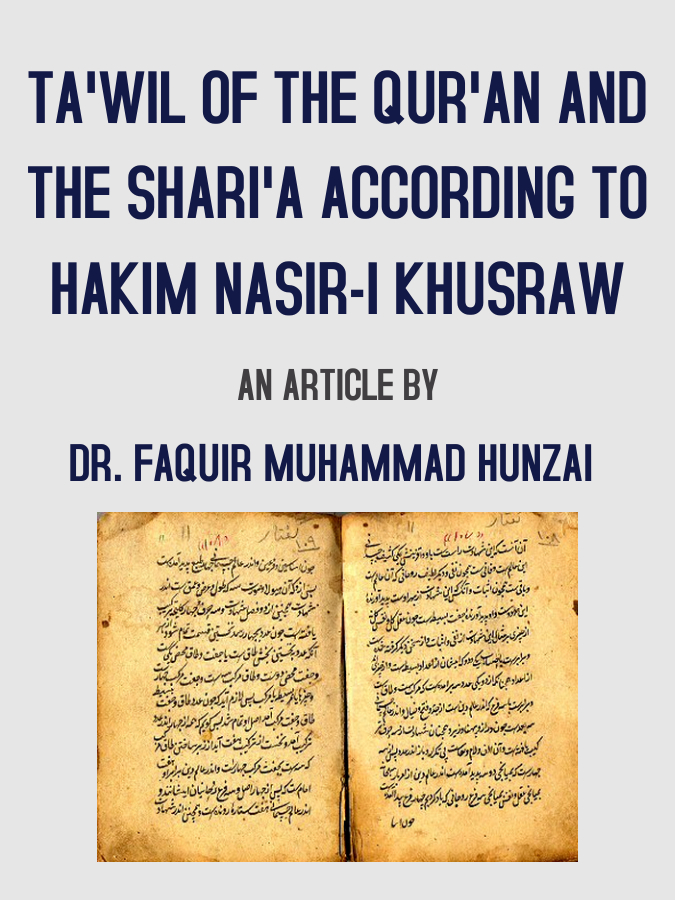Ta’wīl of the Qur’ān and the Sharī’a According to Hakīm Nāṣir-i Khusraw
Excerpt:
We have already discussed verse (7:53), according to which the process of ta’wīl is continuous, as the verb used in it, “ya’tī”, is a muḍārī or aorist that gives the meaning of both the present and the future. Nāṣir establishes the continuity of ta’wīl on the basis of such verses as (16:44): “We have sent down to you [O Muḥammad] the Remembrance (the Qur’ān) so that you may explain to the people what has been sent down, and so that they may reflect”; and verse (17:106): “And a Qur’ān, which we have divided into parts so that you may recite it to the people in intervals.” He argues that in the light of such verses there has to be someone to explain the Book, because God does not say to the Prophet to give it to them so that they may read it themselves, rather He commands him to explain it to them. In verse 17:106, to recite the Qur’ān “at intervals”, according to Nāṣir means to explain its ta’wīl in every time. The one who does this is the Imām of the time.
This excerpt has been taken from page 8.

